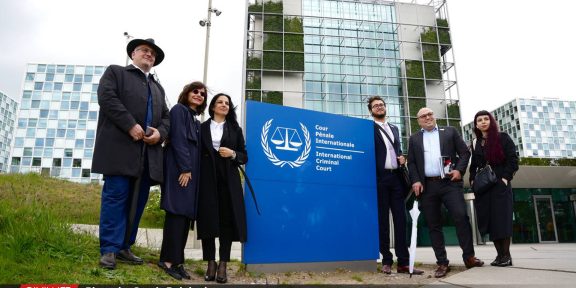By Mark Dovich
Aid trucks from Armenia entered Turkey overland Saturday, marking the first time the two countries’ border has been opened in decades.
“Trucks with humanitarian aid have crossed the Margara bridge on the border and are on their way to the earthquake-stricken region,” Vahan Hunanyan, a spokesperson for Armenia’s Foreign Ministry, wrote on Twitter.
The bridge, which connects the village of Margara in Armenia with the village of Alican in Turkey, has been closed since 1993, when Turkey imposed an economic blockade on Armenia that remains in place to this day.
Serdar Kılıç, Ankara’s special envoy to Yerevan, hailed the move, writing on Twitter that he would “always remember the generous aid sent by the people of Armenia.”
The amount of aid sent has not been made public.
The bridge’s opening for the aid convoy comes as Armenia continues to work to respond to Monday’s disastrous earthquake near the Turkish city of Gaziantep.
On Tuesday, Armenia’s Interior Ministry said it had sent more than 50 specialists to Syria and Turkey to take part in ongoing search and rescue operations.
The next day, Armenia’s Ministry of Emergency Situations said it had flown more than 30 tons of humanitarian aid, including food and medicine, to the Syrian city of Aleppo.
The 7.8 magnitude earthquake, one of the strongest to strike the region in at least a century, has left at least 24,000 people dead in northern Syria and southern Turkey. At least six Armenians, four in Syria and two in Turkey, are reported to be among the dead.
The tragedy has prompted Armenia to renew its diplomatic engagement in the region, with Prime Minister Nikol Pashinyan making separate phone calls Tuesday to Syrian President Bashar al-Assad and Turkish President Recep Tayyip Erdoğan.
It was only Pashinyan’s second phone conversation with Erdoğan since becoming prime minister five years ago.
Armenia and Turkey recognize each other but have no formal diplomatic ties, and relations remain extremely fraught. Disputes includes Turkey’s refusal to acknowledge the Armenian Genocide and its crucial role aiding Azerbaijan in its victory in the second Karabakh war.
Efforts to normalize relations took on a new life in late 2021, when Yerevan and Ankara appointed special envoys for talks, marking the first direct negotiations between Armenian and Turkish officials in over a decade.
A few months later, envoys Ruben Rubinyan of Armenia and Kılıç of Turkey announced they had reached a breakthrough agreement to open their two countries’ land border to citizens of third countries “at the earliest possible date.”
But more than half a year on, that apparent deal has yet to materialize into any changes on the ground, and as of now, the border remains closed to all civilians.
Last summer, CivilNet’s team visited Margara, where the border crossing used Saturday is located, to speak with residents about the possible reopening of the Armenia-Turkey border.
The full report is available in English here: Possible Turkish border reopening causes angst in Armenia’s border villages
















